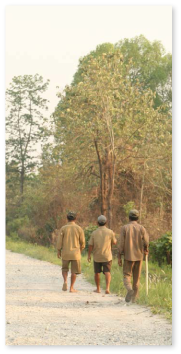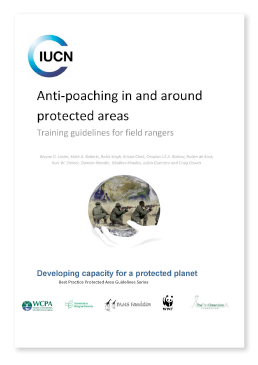Train and motivate staff to provide the best protection

Anti-poaching staff who are adequately trained, paid and looked after with decent housing, equipment and on-going mentoring will be motivated to succeed in their careers protecting wildlife. Using standardized training manuals helps improve staff skill levels; where possible countries should develop wildlife colleges and improve staff welfare. Countries that invest in their staff show a tangible investment in Zero Poaching.





